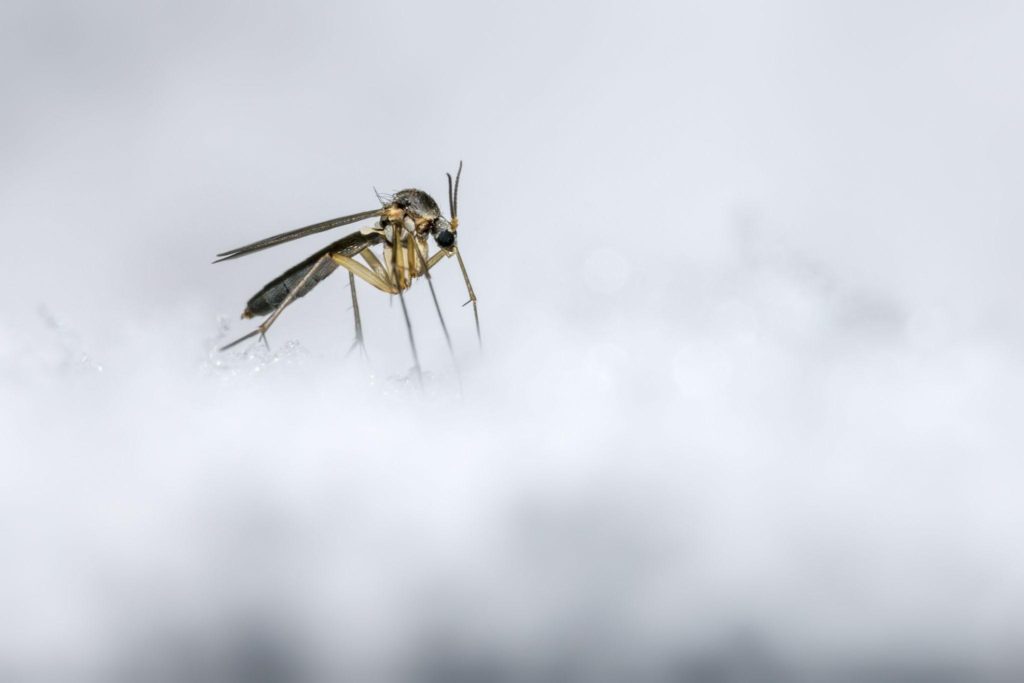When most people think of mosquitoes, they are reminded of a hot summer day spent outside, swatting at the pesky insects. But many people don’t know that mosquitoes can survive the winter.
So how do these insects manage to survive cold weather? Let’s first examine their life cycle to understand better how they do it.
The Stages of a Mosquito Life Cycle
There are four stages in the life cycle of a mosquito: egg, larva, pupa, and adult. Let’s explore what happens in every phase:
- The female mosquito lays her eggs in standing water. Breeding requires only a bottle cap of water, and it takes 24-48 hours for the eggs to hatch.
- Once the eggs hatch, larvae will emerge and feed on microorganisms in the water. These small, worm-like creatures shed their skin several times as they grow into pupae.
- After 7-10 days, the larvae will turn into pupae. In this form, the mosquito remains inactive as they grow and develop into an adult insect.
- Within two days, the pupa will grow into adult mosquitoes that can bite people and fly.
Mosquito lifespan varies from a few days to more than a month, depending on the species. Mosquitoes are most active at 80 degrees Fahrenheit. When the temperature reaches 60 degrees Fahrenheit, these insects become lethargic. And below 50 degrees Fahrenheit, these flying creatures cannot function at all.
So, how do mosquitoes survive the winter?
As it turns out, these pesky insects have evolved a few strategies to make it through the winter. Here are the things they do:
- As the temperatures drop consistently below 50 degrees Fahrenheit, some adult mosquitoes begin to go dormant. They will look for holes and hibernate until warmer temperatures return.
- Other mosquito species lay eggs that can withstand the cold winter. Typically submerged under ice, these eggs will hatch in the spring when the water is warm enough.
How do mosquitoes breed?
Do you know that only female mosquitoes bite humans? Males only feed on nectar, while females suck our blood since they need a human blood protein to produce eggs. These pesky creatures detect carbon dioxide in our breath and follow it to track us. Once they have their blood meal, it takes 3-5 days for the eggs to develop. And the mosquito life cycle begins again.
Protect Your Home From Mosquitoes With Arrow Services, Inc.
Mosquitoes carry many life-threatening diseases—such as dengue, Zika virus, and yellow fever. If you need help exterminating these harmful insects or preventing their growth on your property, contact us at Arrow Services, Inc. We are among the most trusted mosquitoes control services in Indiana and other states!

